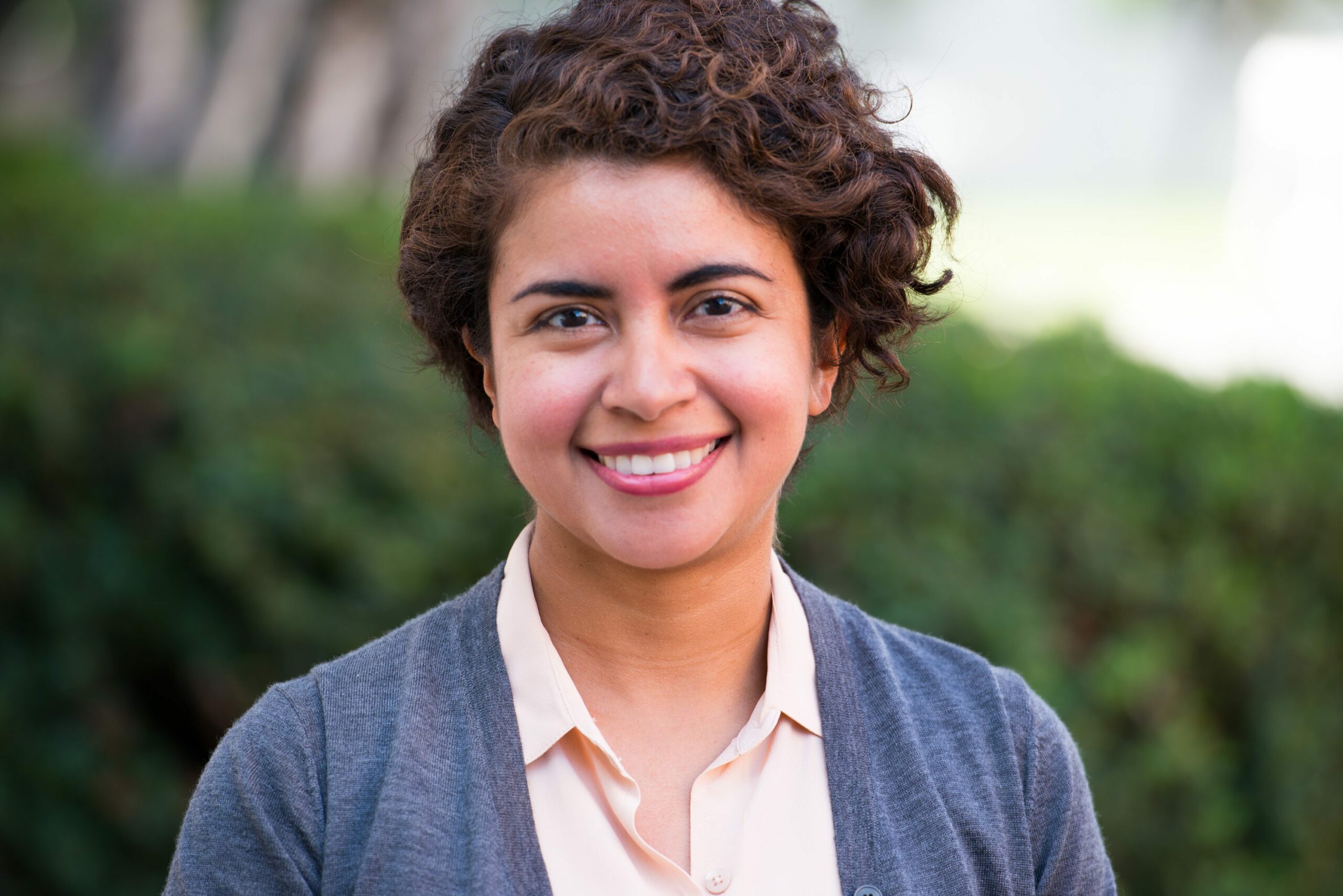Principal Researcher, SRI Education
Elisa Garcia, PhD, is a principal researcher in SRI’s Education Division. She is an expert in the development of early language and literacy, social-emotional skills and executive functioning skills in the context of early childhood education programs, with a focus on multilingual learners. She also has expertise in quantitative data analysis, including experimental and quasi-experimental designs and multilevel modeling.
At SRI, Garcia co-leads the Multilingual Learners program area. She also leads multiple projects that examine how early educational environments contribute to children’s learning and development. For example, she is principal investigator (PI) of the network evaluation of the Catherine Hershey Schools for Early Learning, an initiative to provide comprehensive, high-quality early care and education for children ages birth to 5 years and their families in Pennsylvania. She is the PI of an Administration for Children and Families (ACF)-funded secondary analysis grant to examine how preschool multilingual learners’ bilingual strengths relate to their experiences of classroom quality in Head Start. Garcia is completing work as PI of an evaluation of the impacts of mobile messaging programs on responsive caregiving practices of parents of young children.
Garcia also co-leads projects related to teacher professional development. For example, she is co-PI of a National Professional Development Grant in partnership with researchers at Santa Clara University and San Jose State University to conduct a formative and impact evaluation of workshops focused on bilingual and biliteracy development for elementary teachers. She also co-leads two large-scale, U.S. Department of Education-funded evaluations of evidence-based training and coaching programs for preschool and kindergarten teachers. One is an Institute of Education Sciences (IES)-funded replication study of BEST in CLASS, a Tier 2 (targeted) intervention to support preschool children with persistent challenging behaviors. The other is an Education Innovation and Research (EIR)-funded expansion evaluation of the Pyramid Model, a tiered intervention to support preschool and kindergarten teachers in promoting children’s positive social and emotional development.
Garcia earned her PhD in developmental and psychological science from the Stanford Graduate School of Education, where she was an IES predoctoral training fellow in quantitative policy analysis. She received her BA in psychology from Kenyon College.
Key projects
- Catherine Hershey Schools for Early Learning
- Evaluation of BEST in CLASS
- Mobile Messaging for Responsive Caregiving
- Scaling up Implementation of the Pyramid Model
Recent publications
-
Sparking Connections: Evaluations of Mobile Messaging on Responsive Caregiving
Mobile messaging programs are a low-cost, scalable approach to building parents’ knowledge and capacity to support their children’s development. These programs directly deliver simple and straightforward information, tips, and activities…
-
Leveraging Flexible Teacher Certification Policies to Address the Bilingual Teacher Shortage
In this brief, the authors share strategies that state education agencies may use to provide more flexibility in teacher certification policies and thereby mitigate bilingual teacher shortages.
-
The Efficacy of Digital Media Resources in Improving Children’s Ability to Use Informational Text: An Evaluation of Molly of Denali from PBS KIDS
Two nine-week trials with a national sample of 263 first-graders examined whether free educational videos and digital games supported children’s ability to use informational text to answer real-world questions.
-
National Picture of the Self-Determination Characteristics of Secondary School English Learners With Disabilities
We examined the self-determination of English learners with disabilities in secondary school, based on a secondary analysis of the National Longitudinal Transition Study 2012 (NLTS 2012).
-
Comparing Parent Report and Telemetry Measures of Child Media Use
Accurate measurement of children’s media use is critical for understanding media effects on child outcomes.
-
Early science and engineering: The impact of The Cat in the Hat Knows a Lot About That! on Learning
This study explores whether providing families with access to PBS KIDS The Cat in the Hat Knows a Lot About That! ™ activities can help children learn physical science and…
